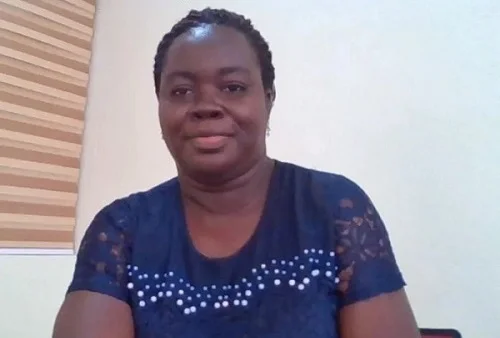Hot!
Mepe queen warns teenage girls against early sex

Queen of Mepe, Mama Sreku
The Queen of Mepe Traditional Area (MTA), Mama Sreku, has cautioned teenage girls against early sex, advising them to focus on their studies to become responsible adults in future.
She asked the young girls, especially, to stay away from sex because they could become pregnant and pose social and economic problems to their families.
According to her, getting pregnant when one was not ready would only compound the huge problems that come with it.
Mama Sreku said this when she addressed guests at the press launch of the Tongu Union of Chiefs at Juapong in the Dorfor Traditional Area of the North Tongu District of the Volta Region.
According to Mama Sreku, the youth are full of energy and want to be engaged in a lot of things but cautioned that that energy must be put to good use.
She reminded teenage girls of the challenges they would face if they become pregnant before marriage or become victims of early marriage.
“The girls must be aware that many future opportunities may elude them while the boys that made them pregnant would walk around freely. These boys would continue with their education and become responsible people but would not return to the victims. This is why our girls must be extremely cautious.”
To this end, she advised parents to bring their wards up dutifully to grow into responsible adults, and asked the youth, particularly the girls, to endeavour to learn a trade to enable them to become self-employed and economically independent.
The queen advised the youth to cherish and protect the rich culture of their respective areas because culture and tradition remain as the lifeline of every society, and undermining it would retard development.
She urged the youth to treasure their cultural values, such as dance and mother tongue among others, for the benefit of the present and the future generations.
A teacher who led the Volo D.A JHS Culture troupe to perform at the ceremony, Ms Helen Wotordzor, said the troupe was formed two years ago to participate in a District Arts and Culture competition which they ended in second position.
Ms Wotordzor explained that the enthusiasm students showed had improved discipline and brought to an end students’ absenteeism and lateness to school because members of the troupe who absented themselves from school or late were suspended.
From Samuel Agbewode, Juapong
Hot!
Swedru All Blacks back to winning ways, Roshan humble King Faisal

Sekondi Rospak FC made it eight wins in eight successive home games after three second-half goals from John Amoah, Joseph Ntow and Stephen Anthony Kofi. John Amoah opened the scoring in the 55th minute after a barren first half. Joseph Ntow added to the tally in the 56th minute before Stephen Anthony Kofi rounded things up in the 74th minute to give Rospak a 3-0 win over former Premier League side King Faisal.
Elsewhere at Swedru – leaders Swedru All Blacks humbled PAC Academy in an emphatic 2-0 win. Zayat Bubakari scored first for Swedru All Blacks in the 27th minute before Rudolf Junior Nana Kwasi Mensah made it 2-0 in the 34th minute. Swedru All Blacks are top of the table with 36 points – 4 points ahead of second placed Rospak FC.
Meanwhile, Former Premier League side Cape Coast Mysterious Dwarfs recorded their fourth successive home victory after beaten New Edubiase United 2-1 at the Robert Mensah Park. Enoch Odoom struck first for Cape Coast Mysterious Dwarfs in the 19th minute but Steven Asante equalized for New Edubiase United before halftime. After the interval, Godfred Eshun scored from distance in the 65th minute to help Cape Coast Mysterious Dwarfs secure all the points.
Here are the results in Zone Two

Hot!
Cervical Cancer alert: Avoid sex at early age

The Programmes Manager of Non-Communicable Diseases (NCDs) of the Ghana Health Service (GHS), Dr Mary Efua Commeh, has advised young girls to avoid sex at an early age.
This, she explained, will give the cervix the opportunity to mature before they become sexually active.
“You need to delay what we call the first sexual intercourse as much as possible to give the cervix the opportunity to mature before the person becomes sexually active,” she said.
Dr Commeh stated this in an interview with The Spectator in Accra on Tuesday as a part of the Cervical Cancer awareness month.
According to her, cervical cancer was the second leading female cancer in Ghana with a total of about 3,072 cases annually, and out of that, 1,815 deaths are recorded, representing more than 50 per cent.
She indicated that “If young girls are going to be sexually active, then you need to talk to your parents about being vaccinated.”
She explained that vaccinating young girls against human papillomavirus (HPV) has been found to be a very effective way of preventing cervical cancer.
“There are countries that started HPV vaccination years ago and they are not seeing any cervical cancers now because they would have eliminated most of the high-risk HPVs in their women. So if the high-risk HPV is not there, then obviously the results on cervical cancers are going to go down,” she added.
Dr Commmey said the HPV vaccination is recommended for young girls aged nine to 14 years, adding that it had been found to be highly effective, not just for cervical cancers but for other HPV-related cancers, such as anal cancers, cancers of the vagina, genital warts, amongst others.
She further elaborated that the idea is to put up a barrier before the HPV comes in and that once a young female encounters it, she is already protected.
She also mentioned that for cervical cancers, the main cause is called HPV infection, saying generally, all sexually active women acquire HPV at some point in their lives.
However, the Programmes Manager of NCDs at the GHS mentioned that the body has a way of clearing the HPV, explaining that it is a natural mechanism that goes on, unfortunately, there are a few women whose HPV persists.
Moreover, she noted that the numbers for Cervical Cancer tend to be much higher because at times, clients would wait, and try all sorts of medications before they finally report to the health facility saying “we actually lose some women before they get to the hospitals with over 75 per cent of the cases coming in its third and fourth stages.”
Dr Commey, therefore, called for public awareness while ensuring the availability of information for prevention and control.
By Jemima Esinam Kuatsinu







